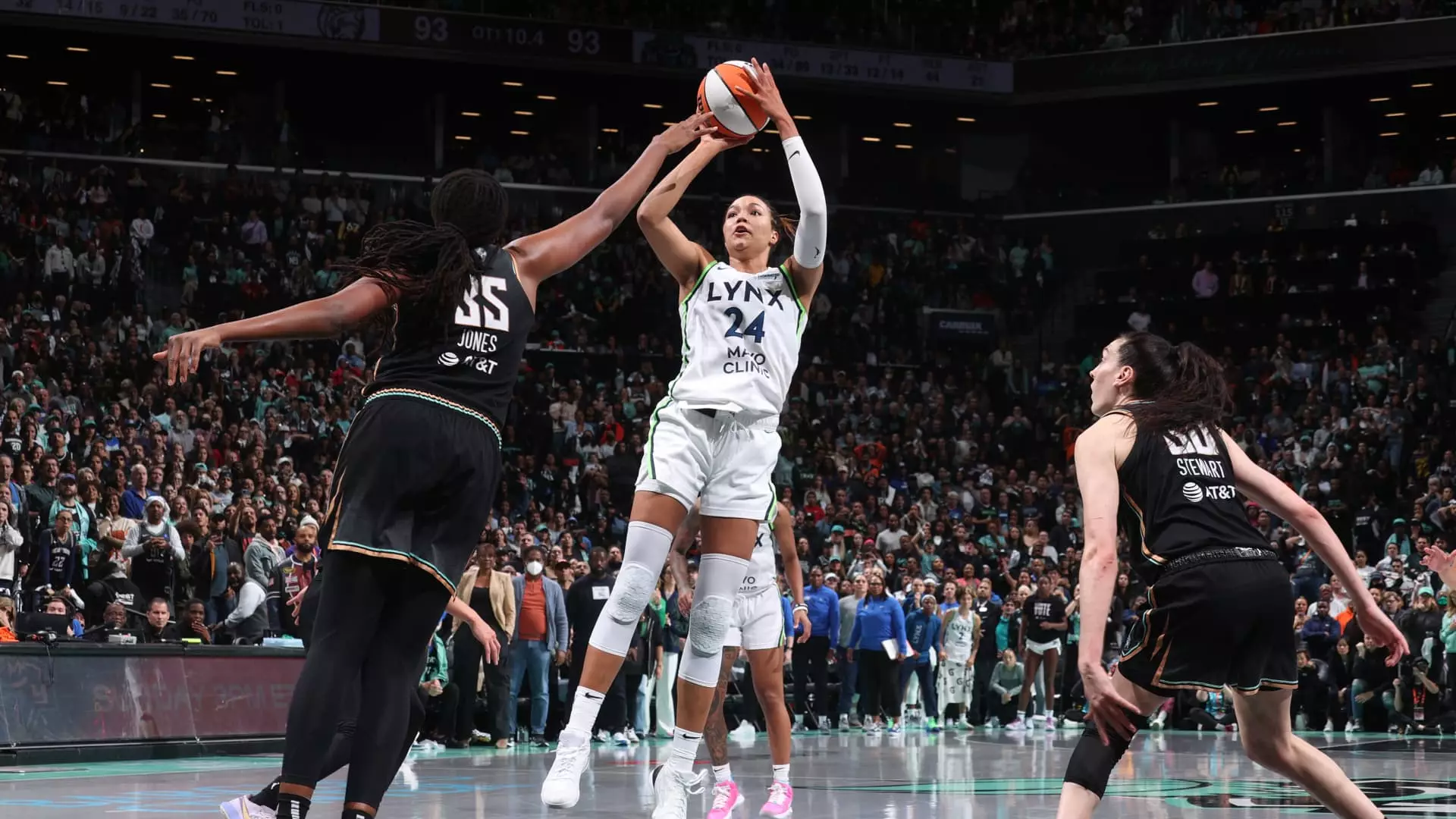As the world of sports continues to evolve, the Women’s National Basketball Association (WNBA) has announced significant changes set to take place in the 2025 season. Commissioner Cathy Engelbert’s recent announcement marks a pivotal moment for the league, which will see its regular season expand from 40 games to 44. Moreover, the Finals series, now a best-of-five format, will shift to a more intense best-of-seven showdown. This realignment is not merely a procedural change; it is a reflection of the league’s growing stature, an acknowledgment of increased fan engagement, and a strategic move to enhance the quality of competition.
The introduction of the 2-2-1-1-1 format for home games indicates a move towards a more competitive playoff atmosphere, where both teams have the fair opportunity to leverage their home crowds. This change, along with the introduction of alternating hosts for the first-round playoff series, can enrich the viewing experience for fans and enhance the stakes for players. Engelbert highlights that the decision to extend both the regular season and playoff series was influenced significantly by the growing popularity of the league, which has been accelerated by various factors, including improved media rights deals and the introduction of charter flights for teams.
The WNBA’s popularity surge is evident not only in its television ratings and attendance figures but also in the financial commitments from media partners and sponsors alike. Recently, the league secured a remarkable $2.2 billion media rights deal, spanning 11 seasons, a clear indication that investors and companies are recognizing the potency of women’s sports. This burgeoning interest aligns with the influx of young talent entering the league, with notable players like Caitlin Clark and Angel Reese grabbing headlines and elevating the league’s competitive landscape.
Nesta Halls and established stars such as Breanna Stewart and A’ja Wilson amplify the excitement surrounding the league, inspiring a new generation of fans and players. Their talent not only attracts viewership but also fosters a deeper connection with communities, encouraging more young girls to dream of being basketball stars. Yet, the path to success is not without obstacles. As the league embraces growth, it is also grappling with the darker side of increased visibility: racial incidents and online harassment that many players have unfortunately faced.
Engelbert’s comments regarding the backlash over racism and harassment reveal a delicate aspect of the league’s rapid ascent. While she has condemned hate and racism in her clarifications, tackling systemic issues within the sport requires careful handling and proactive measures. The league must balance its growth with a responsibility to create a safe environment for its players. Enhanced support mechanisms and clear policies against harassment will be crucial in this regard as the league expands its footprint in the sporting world.
Women’s sports, in general, are seeing a renaissance, and the WNBA stands at the forefront. But this expansion brings its own set of challenges as well. Industry leaders, such as Patrick Whitesell and Jeff Zucker, have begun advocating for the potential of women’s sports, which indicates an increasing recognition of the value it brings to sports as a whole.
With the debut of the Golden State Valkyries in 2025, along with the establishment of teams in Toronto and Portland by 2026, the WNBA is on the brink of transformation. These expansions not only symbolize growth but also open avenues for new fans and regional representation that is crucial for any evolving league. Engelbert’s strategic vision underscores the commitment to making the WNBA not just a league but a vibrant and inclusive community.
As the league gears up for the 2024 Finals between the Minnesota Lynx and the New York Liberty, the anticipation surrounding the WNBA’s evolution is palpable. This momentous phase in WNBA history not only promises exhilarating basketball but also signals a commitment to resilience, advocacy, and representation in sports, paving the way for the next generation of athletes.
The WNBA is poised for an exciting future that merges increased competition with opportunities for cultural growth, marking a significant step towards equality and recognition in the world of sports.

